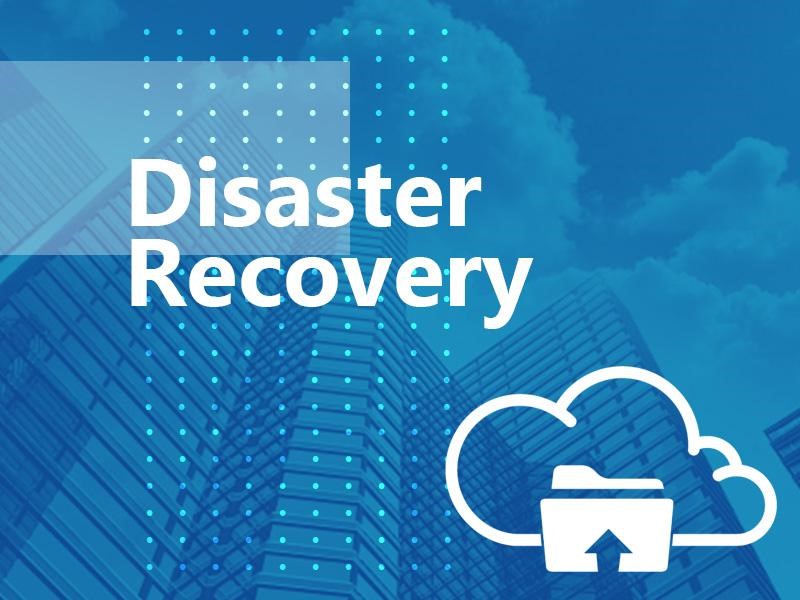Companies often struggle to create a unified and secure database that stores all the updated information and details of their supply chain. Even though the supply chain is an integral part of operational activity for many corporate leaders and leading enterprises, they still lack effective software that can handle data seamlessly. The technologies and software applications implemented for these systems have still not delivered the high-quality and timely results as promised.
With time, businesses have realized the importance of cloud-based supply chain solutions for their routine activities and strategies to improve proficiency and profitability. The top companies have to deal with business across borders and cloud solutions have taken them beyond the restrictions of traditional supply chain software. In fact, today, any supply chain without cloud technology is just considered out of the norm. Thanks to this advanced technology, companies have got a holistic platform that is accessible by authentic members, thereby streamlining communication and enhancing productivity. Along with informational excellence, it also offers financial and physical business flow that contributes to their performance and companies are well aware of this. The cloud supply chain moves the entire data to a central hub and using a common core technology, all team members can connect through a single version of the supply chain across the network.
Going by the recent stats and studies, here are some numbers and trends related to the cloud-based supply chain:
- The market for cloud supply chain management might reach up to $8.61 billion by 2025 as compared to $4.58 billion in 2019.
- Over 90% of spending on supply chain solutions will be for cloud systems.
- Cloud-based supply chain software is expected to cross $11 billion in the next two years and SaaS revenue can exceed $305 billion by 2024.
- Cloud solutions have become a major cost-saving alternative, delivering efficient solutions through a SaaS model. BY 2021, approx 380 million SaaS workloads will be installed worldwide.
If you still haven’t availed of cloud computing solutions for your supply chain business, then these five reasons will surely give an extra nudge:
Do You Know the Benefits of Cloud Computing for SMEs?
Highlights of Contents
8 Reasons Your Supply Chain Should be Migrating to the Cloud
1. Scalability

With cloud-based supply chain management, you get the benefit of scalability so that you can add resources and information as per your requirements. This is even more important when you are operating globally and must maintain an effective line of communication for collaboration. The data sets are accessible and the supply chain is a lot more efficient, enabling you to manage IT resources based on your present and future business needs. When you have multiple networks of companies or individuals handled by a single cloud system, there are no more geographical boundaries. You simply need a reliable WiFi connection to the store, share, and communicate. Hence, scalability plays a crucial role in sourcing teams and operational procurement. Our expert will help you with cloud hosting and bringing instant growth in your capability. It will scale up your supply chain easily as similar to adding new data or new lines of information. You can also determine new supply needs and acquire resources without any hassle.
2. Cost-Effectiveness

Yes, most transactions have moved online but the competition between businesses is still fierce and affected by the law of demand and supply chain. The logistics and supply chain software services empowered with cloud computing bring benefits of cost-effectiveness for users. It is, in fact, one of the major reasons for companies to shift to the cloud. When you seek outsourcing services to maintain and manage your IT infrastructure for your data centers, the implementation in your organization can be a costly affair. However, with the cloud supply chain, you can cut costs to a huge extent while expanding capabilities and widening customer base. The cloud hosts consider your budget and needs by decreasing you’re overall IT spend. The providers offer support that intends to keep your IT infrastructure and system running. It distributes your expenses across different users irrespective of the size of companies.
3. Disaster Recovery

Data is a vital part of any business and losing even a single day’s data can create havoc in operations. The business can experience setbacks due to disruption in continuity and the loss in terms of time, money, and productivity is unimaginable. Well, you can keep all your data loss worries at bay with a reliable cloud computing service for your supply chain. By hosting data and systems in the cloud, you are assured that it is protected. The flow of goods through the supply chain is smooth. With an authentic cloud hosting provider, you get hosting systems in multiple locations so that you can recover data instantly in case any disaster strikes. Moreover, cloud supply management adds another component in disaster recovery and business continuity by providing backup software that stores and protects data regularly. There are custom solutions for varied environments, such as when you have multiple platforms empowered with different technologies and operating systems. You avail off-site data storage systems and fast access to backup during data loss by incorporating cloud backup into your entire data protection strategy.
4. Integration
Another reason that makes the cloud computing supply chain a must-have is how well it can integrate with your other systems. Cloud-driven supply chain solutions can streamline input, output, and data sharing within teams, organizations, or individuals. Also, the system displays a feature of ‘plugged in; which means that it can source data from one cloud to another. Hence, managers and supervisors can work easily from robust platforms with an array of capabilities. It also brings higher trust and transparency amongst different teams and parties working on a shared cloud. Multiple platforms can work with each other without hassle through a set of standardized protocols which eliminates the digital boundaries between smooth communication and order fulfillment.
5. Radical Approach
Today, hardly any company works as a single entity. They operate as a network of multiple companies, communicating and interacting to attain their respective goals. There are core functions, including manufacturing, procurement, financial settlement, logistics, and IT which are often outsourced from reliable and specialist partners. Chances are that many of them might be located across the globe working from different nations. So, how to overcome this restriction? By seeking cloud services for the supply chain, you make your business dynamic and less risky. It makes your company agile and responsive, helping you keep pace with increasing competition and the business world. The informational nervous system takes you beyond corporate boundaries so that all involved partners can collaborate from distance.
6. Redundancy
Companies often face the risks of downtime and data loss while switching to the cloud. These accidental risks further lead to expensive interruptions in processes and operations. So, how businesses are supposed to deal with the problem? Well, the answer is cloud-based supply chain management which is more secure than any local or in-house servers. The local systems are quite vulnerable and risk-prone when it comes to downtime or outage. Hence, supply chain companies are switching to cloud systems to avoid any accidental data loss. The best part of cloud management is that when a server faces malfunction temporarily due to any reason, the cloud transfers the data and software to multiple servers instantly, thereby ensuring uninterrupted services and fast processing speed. Moreover, rather than restricting you to your office or any specific location, it works on the go. Thus, overcoming all the technical obstacles that would shut down your company for hours.
7. Security
There has always been debate and concern about security in the cloud system. Everyone has an opinion when it comes to security in local/in-house servers and cloud-based systems. In Spite of several views and facts, we cannot deny that the cloud provides incredible security to data, networks, computers, and information. Supply chain companies have to invest a lot of time, money, and effort to keep sensitive information protected from any theft or loss. With the cloud, you hardly need to worry about data hacking or cyber infringement as it allows access to only authorized people. It protects the data through encryption and various other methods. So, once you invest in a reliable and trusted cloud service, rest assured that it will surely pay off in the end.
8. Efficiency
With cloud solutions, companies can leverage the power of automation and data analysis for their repetitive tasks. The cloud-based system manages the tasks through policy management, configurable rules, custom workflows, routing guides, etc. It follows a step-by-step process for efficiency analysis, allowing teams to make informed decisions without straining the budget. We need not say that this results in more intelligent systems for the whole supply processes. Furthermore, when you adopt cloud solutions for your supply chain business, you will experience better collaboration as it allows enhanced communication and data sharing as compared to traditional and outdated systems. The management teams can share information and data easily across different locations.
Related: Top 5 Important Cloud Apps for Small Business
Conclusion
One might say that the cloud solution cannot solve all the problems of the supply chain. However, you also cannot deny that it contributes toward better and enhanced performance, delivering the right product to the right place at the right time without straining your budget and much faster. So, it’s high time to consider cloud computing options for your logistics business. For further information and assistance, connect with us now.
FAQs for Supply Chain and Cloud
Q1- What is Supply chain management?
A1- Supply chain management refers to the active management of the flow of goods and services to deliver the utmost customer satisfaction and attain an edge over competitors. It manages supply chain activities and includes all the processes from sourcing, production, development, logistics, transforming raw materials to finished goods by streamlining them.
Q2- What to consider before moving to cloud-based solutions?
A2- As you move to a cloud-based solution, there are a few things that you must consider to ensure that the cloud solution is implemented successfully. Amongst various factors, the key points to think about include security, data storage needs of your business, data encryption importance, deployment model, scalability, experience, and credibility of the cloud service provider, etc.
Q3- What are the key activities included in the cloud supply chain?
A3- Many supply chain organizations have witnessed a great improvement in various activities as they switch to cloud computing. Although it offers benefits at large scale, it focuses on a few activities more. These supply chain operations are planning & forecasting, logistics, service management, and sourcing & procurement.
Q4- What are the important factors while adopting cloud in the supply chain?
A4- Yes, taking your supply chain business to the cloud is beneficial and tempting for companies. However, organizations need to be careful to ensure successful deployment and implement a strategy that aligns with business goals. The data transfer must be disruption-free and suitable for cloud migration. Processes that are heavily integrated are also not suitable for the cloud.
Q5- How to select the best company for the cloud supply chain?
A5- There are many companies and software options available to implement cloud in your supply chain operations. However, only a few can deliver the best results as per your business requirements. To select the best vendors, make sure to go through their past clients, work experience, reliability, portfolio, authenticity, and if they suit your budget or not.
